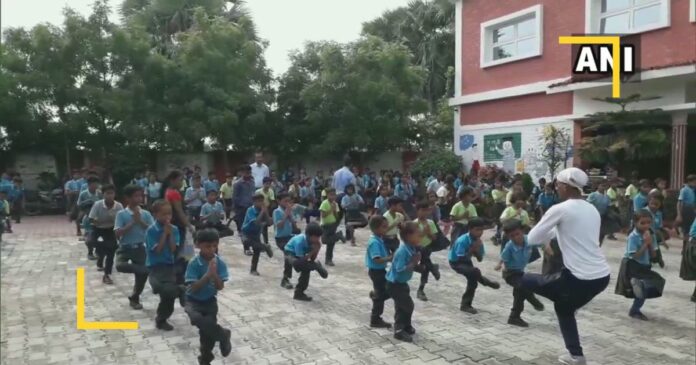In an innovative approach, a school in the Sewabigha village of Gaya district in Bihar is collecting plastic waste instead of school fees. The school’s name is Padampani, a government primary school. The school began collecting plastic waste as fees about 4 years ago.
Students collect plastic waste from nearby areas and their homes. They submit it in a collector kept at the school’s entrance. This helps keeps the area clean and instill a sense of duty towards environment in the children.
The monetary proceeds generated from recycling the plastic waste are used to provide free education to the children. It helps pay for different things like uniforms, school bags, stationery and books. The school has a strength of 244 students and employs 10 teachers. It has standards from 1st till 8th.
The school was started in 2014 and all of its electronic appliances run on electricity generated from solar panels. Its students have also planted more than 700 seeds in various green drives. These seeds have now matured into trees.
In India, there is a vast system of welfare around education. The state works on principles of Gandhian philosophy according to which providing education to each and every child is its moral responsibility.
Government have started various schemes to encourage students to attend schools chief among them being the ‘mid-day meal scheme’. The government has also invested heavily in building sanitary toilets to help girls attend schools during their menstrual periods.
These large-scale projects undertaken by government over 75 years since independence have catapulted India’s literacy rate from 12% in 1947 to 77.7 percent in 2022.



